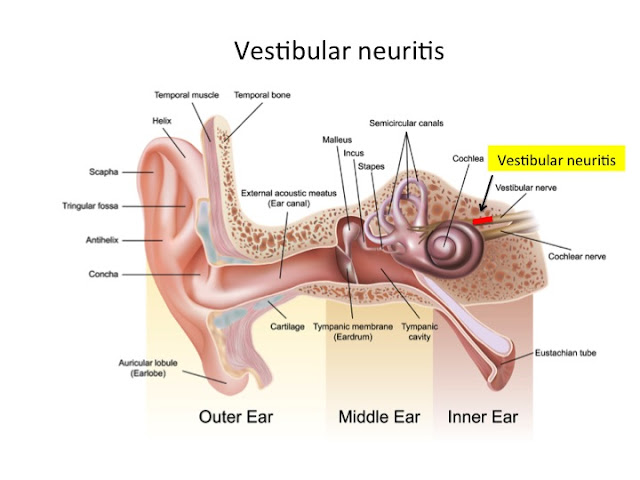Your Audiology Tutorial: Vestibular Neuritis
Vestibular neuritis aka vestibular neuronitis is described as inflammation of the eighth cranial nerve, usually the superior branch. The cause is believed thus far to be of viral origin. Auditory symptoms are not noted with this peripheral disorder. Patients typically report a single, lengthy attack of room spinning vertigo, along with nausea and vomiting. They may also disclose difficulty with their ambulation. The event can last for a day or longer.
Viruses such as herpes simplex and ctytomegalovirus have been revealed in serological studies as potential causes. Medications like meclizine can help with vertigo, but only suppress the vestibular system for a short time.
If the ENT orders a videonystagmography (VNG) battery, a unilateral caloric weakness may be noted in the affected ear for a patient with vestibular neuritis. This means one ear is sending weaker messages up the nerve to the brain, and would certainly account for the postural difficulty. Vestibular Rehabilitation Therapy (VRT) - a series of exercises designed to train the brain to compensate for the weakness - can be very helpful.
Differential diagnosis should be clear to distinguish vestibular neuritis from labyrinthitis, which is inflammation of the inner ear (cochlea and semicircular canals). The origin may be bacterial and auditory symptoms such as hearing loss, aural fullness, and tinnitus are usually present.



Comments